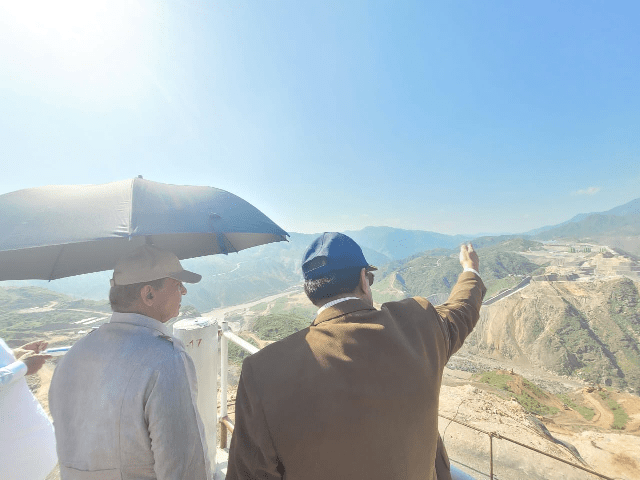Peshawar:
The Federal Minister of Water Resources, Muhammad Moin Wattoo, has issued a severe warning against any attempt to interrupt Pakistan’s water supply, calling for such actions “an act of war.” He stressed that the government will not tolerate any infraction in the country’s water rights.
Speaking at the inauguration ceremony of the Mohmand Dam Phase-II dam, the minister underlined the critical role of water in the survival and progress of Pakistan.
“No one has the right to drink our water. Blocking it is equivalent to riding a war against us,” Wattoo said firmly.
He referred to the Treaty of the Water of the Indo, stating that both Pakistan and India are legally obliged to honor their terms.
“This is a binding agreement with full legal validity. Its suspension or violation will not be tolerated under any circumstance,” he warned.
Progress in the Mohmand dam
Wattoo said that the construction of the Mohmand dam is progressing rapidly and is projected to complete by 2027 or 2028. However, he assured the public that the government strives to complete it before planned.
He also praised the contributions of Chinese engineers who work in the project.
“It is really commendable that Chinese engineers work day and night to guarantee the timely completion of this crucial infrastructure,” he said.
Wattoo reiterated the government’s commitment to assign all available resources to ensure the rapid completion of the dam.
Economic and environmental impact
Once operational, the Mohmand dam will generate 800 megawatts of clean and affordable hydroelectric energy and bring thousands of acres of ground under irrigation. The local economy is expected to improve jobs and increasing agricultural productivity.
The president of the WAPDA, the LT Gen (retd.) Sajad Ghani was also present at the ceremony.
Located on the Swat River in the Mohmand district of Khyber-Pakhtunkhwa, the dam is prepared to be the fifth dam full of rocks (CFRD) of the largest rock, 213 meters high. It will have a storage capacity of 1.29 million Acres-PIES, bringing 18,233 acres of new lands in the districts of Mohmand and Charsadda under cultivation, while supporting irrigation for another 160,000 existing cultivation lands.




